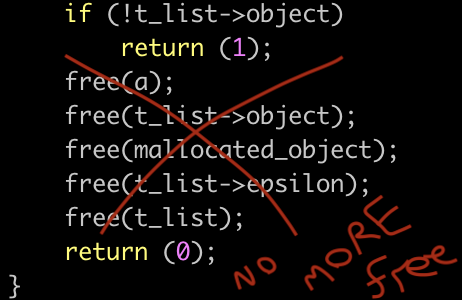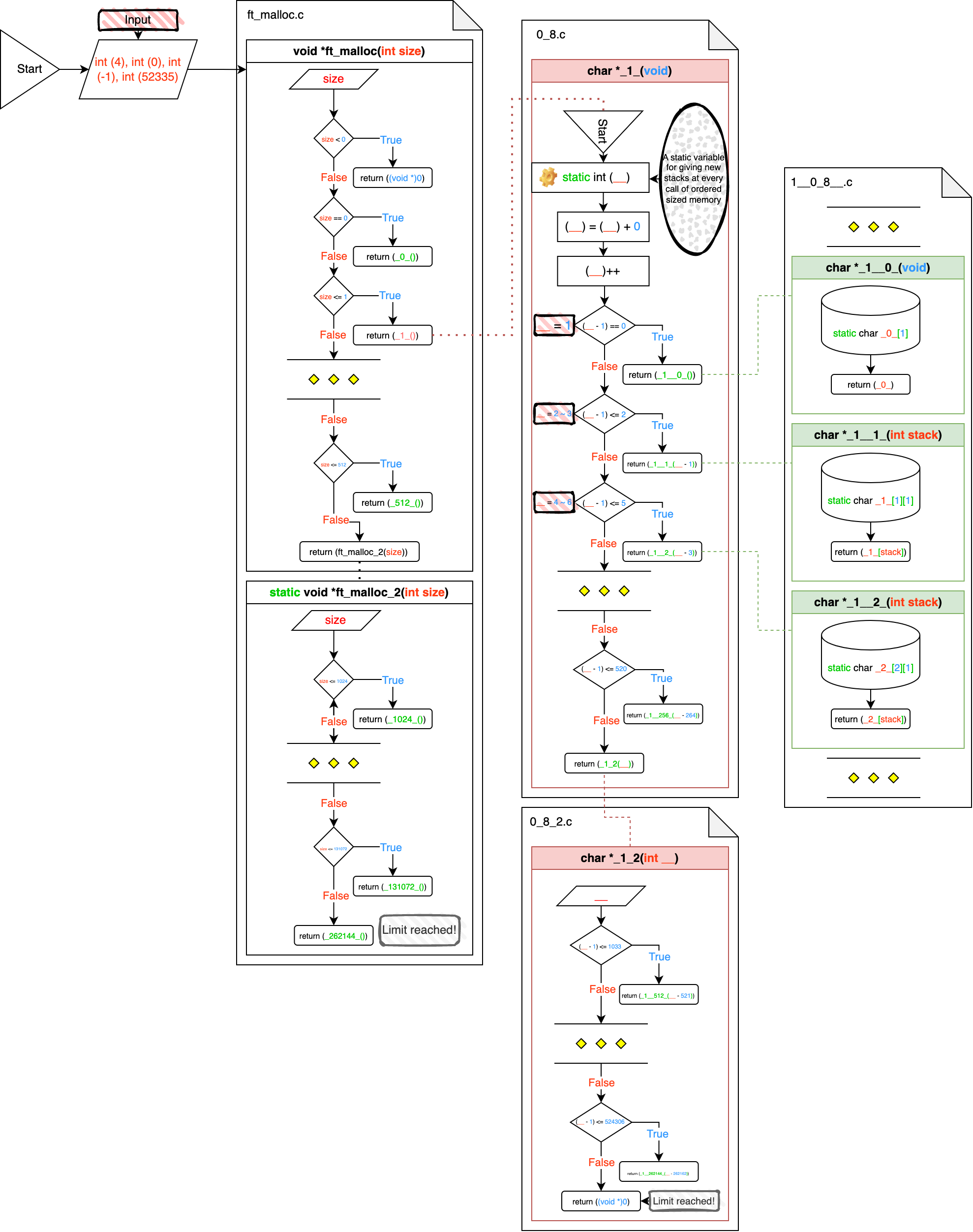ft_malloc is a kind of easy-make of original malloc that just made in scratch. It is just fills the needed size of vairable you need to fill with.
You don't have to use free() when you used this function.
Windows:
You can double click
MAKE.batfile and directly install it.Or in console, write
maketo compile the stup.
Linux, macOS:
In console, write
maketo compile the setup.
Here's the arguments MAKE.bat and Makefile using:
fc,fclean,fclear-> Clear both object and created products.
c,clean,clear-> Clear only object files
re-> Remake everything
Then, in console: you need to include your binary compiler library (.a file) via parameter while compiling your file.
GCC main.c ft_malloc.a
You can use ft_malloc() exactly like same with original malloc() from <stdlib.h> library but without free() needed.
#include "ft_malloc.h"
#include <stdio.h>
int
main(void)
{
char *test;
test = (char) ft_malloc(10 * sizeof(char *));
test[0] = 'T';
test[1] = 'e';
test[2] = 'o';
test[3] = 0;
printf("%s\n", test);
return (0);
}I don't know.
Just kidding: It is creating a static array in ordered size and returns it.
But instead of returning the exact same size of memory allocation, it is sending a close value.
Like:
ft_malloc(5)going to return 8 bytes of storage
ft_malloc(19)going to return 32 bytes of storage
ft_malloc(35)going to return 64 bytes of storage
However, the hard part is not sending the same static array in this situation.
Like allocating 2 different same size variables.
It should return different same sized static arrays right?
For that, we just need to do a little pyramid like an idler idiot.
This is the a part of the algorithm showing how it is working.
We created a static integer that choices different same sized arrays as you ordered.
But as you can see at that image, something strange mathematical calculation happening in if commands.
They are for: when we sending the static integer to function that creating the ordered sized memory for us, it should start from 0 instead of static value's itself.
So, for that: We should also add in if command previous calculated static variable values.
And lastly, we should do an extraction via received static value with ordered size, and bob's your uncle.
Why we calculating the if like that?
Because the before calculation is also includes the total used value of static variable. So, this is the smarter way to handle that.
(previous if wanted value) - (ordered size + 1)




